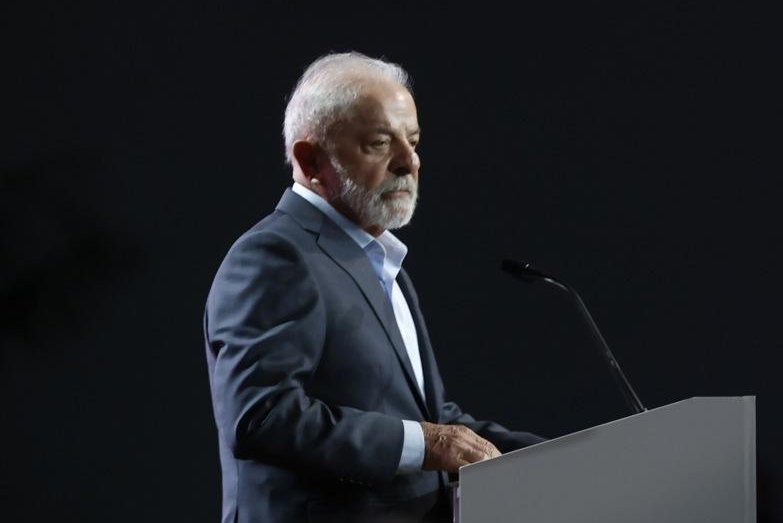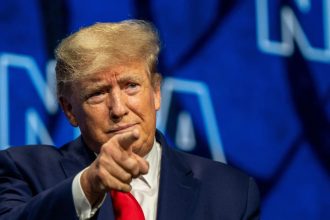Nov. 13 (UPI) — Brazil is deepening political and economic ties with China and Russia to reduce its dependence on the United States — a strategy driven by new U.S. tariffs and President Luiz Inácio Lula da Silva’s goal of asserting a more independent global role.
That’s according to analyst R. Evan Ellis, a research professor of Latin American Studies at the U.S. Army War College Strategic Studies Institute. Brazil is pursuing “the most left-leaning foreign policy it has had in decades,” marked by cooperation with powers that challenge U.S. influence in the region.
Ellis identified three main pillars behind this shift: growing military and technological cooperation with China and Russia, energy diplomacy that reduces the presence of U.S. companies, and a stronger alignment with multilateral forums such as the BRICS group, which seek to reshape the international order.
“Brazil’s willingness to diversify its security partnerships beyond Washington shows a deliberate intent to gain autonomy,” Ellis told UPI.
The diplomatic shift follows Washington’s decision in July to raise tariffs on certain Brazilian goods by up to 50%, citing national security concerns.
Brazil denounced the measure as “unjustified” and reaffirmed its right to diversify trade partners to safeguard its interests.
China — already Brazil’s top trading partner — doubled its direct investment in the country in 2024, reaching $4.2 billion in energy, infrastructure and telecommunications projects, according to the Brazil-China Business Council’s annual report.
Companies such as State Grid, Huawei, and Xiaomi now hold dominant positions in key sectors, from power transmission to the smartphone market.
Brazil’s Agriculture Ministry reported that agribusiness exports reached $15 billion in April, with China accounting for 36% of total sales.
“Diversifying markets reduces risks and strengthens Brazil’s position as a global supplier,” the ministry said in a statement.
For Ellis, this pursuit of “strategic autonomy” does not imply a break with Washington but rather a gradual rebalancing of power. “If Brazil continues to hedge toward Beijing and Moscow, the U.S. will face shrinking tools of leverage,” he warned.
The scholar noted that he does not foresee an immediate loss of U.S. influence, but rather the emergence of a solid counterweight.
“For now, I don’t see a reduction of U.S. leverage, but rather a strong counterbalance,” he said. “Brazil represents half of South America’s territory, population and GDP, has larger armed forces than the rest of the continent, and maintains historical ties with Africa and the BRICS countries.
“That could open new economic and military gateways for Russia, China, and Iran in the region — and offer Latin American governments alternative political and economic paths to the United States.”
Ellis added that Brazil’s leadership could consolidate “even against its own will,” due to its size, global connections and the broader context of U.S. policy.
Brazil has also expanded trade with Russia — mainly in fertilizers and fuel — and with Iran, with which it is negotiating local-currency transactions.
Ellis said he expects regional governments to maintain pragmatic relations with Brazil despite lingering tensions.
“Mercosur countries will continue to see Brazil as a key partner, though historical mistrust remains, particularly in Paraguay and Uruguay,” he said. “Argentina keeps its traditional political rivalry, and Latin America operates like a ‘club’ where everyone speaks politely, even when tensions persist behind the scenes.”
The analyst cautioned that some conservative sectors, especially within Brazil’s armed forces, “view the Workers’ Party’s leftist project and its ties with China, Russia and Iran with concern.”
Still, he said Lula is unlikely to fully align with authoritarian regimes such as Venezuela or Nicaragua, keeping Brazil in an ambiguous, but increasingly influential position.
“In the end, we’ll see a clearer division in the region regarding cooperation with the U.S. versus engagement with China — though it will remain hidden under the façade of Latin American unity,” Ellis said.
What began as a pragmatic push for economic independence, he said, has evolved into a geopolitical realignment with hemispheric implications.









